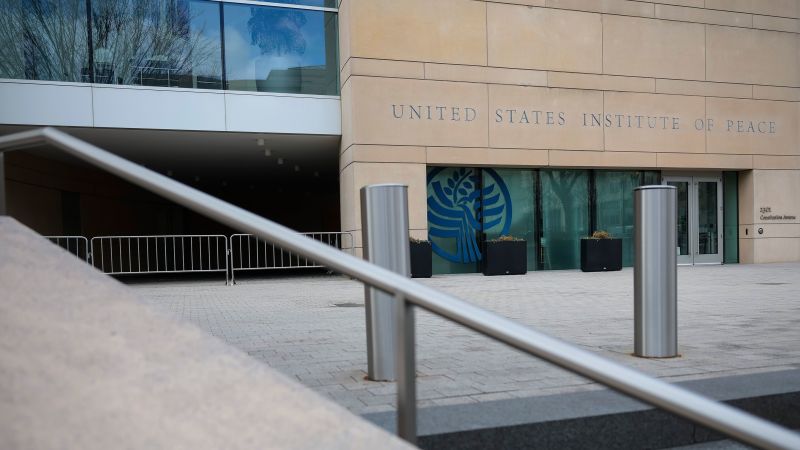Employees at the United States Institute of Peace (USIP) faced a second round of mass firings on July 11, 2023, following a federal court ruling that allowed the Trump administration to proceed with its restructuring plans. Multiple former employees reported that the Department of Government Efficiency (DOGE) notified staff members of their termination, retaining only a few individuals to assist with winding down operations.
Liz Callihan, a former senior adviser for strategic engagement at USIP, expressed her dismay at the situation. She described the firings as reflective of DOGE’s “cruel indifference” towards the dedicated workforce at USIP. Callihan emphasized that these actions jeopardize the institute’s vital work in training, education, and research in conflict resolution across the globe.
The Trump administration has been actively working to redefine the United States’ role abroad, often targeting key components of the federal government. In recent months, there have been instances where the administration reversed course, rehiring some employees in response to critical staffing shortages.
Callihan, who joined USIP in 2012, characterized the emotional impact of the firings as “devastating,” highlighting the instability that employees have faced. She was part of a “landing team” brought back to rebuild programs after the first wave of layoffs earlier this year. On July 11, employees began receiving their termination notices, including those who had previously been furloughed.
The initial round of firings occurred on March 28, 2023. A federal judge subsequently ruled in May that the Trump administration had unlawfully removed USIP’s board, declaring subsequent actions taken by DOGE as “null and void.” However, a federal appeals court later stayed that ruling, enabling the recent mass layoffs.
Hodei Sultan, another employee impacted by the firings, has been with USIP since 2009 and oversaw operations within the Asia center. She described the latest round of terminations as “really horrific.” Sultan noted the tendency for mass firings to occur late at night, humorously referring to the incidents as “Friday night massacre 1.0” and “Friday massacre 2.0.”
Callihan further articulated her concerns, stating, “Having regained control of USIP, DOGE is renewing its mistreatment of USIP employees and its systematic dismantling of an institution authorized by Congress to promote peacebuilding efforts around the world.”
Established in 1984, USIP operates as a nonpartisan, independent entity, distinct from federal agencies within the executive branch. Its mission focuses on fostering research, policy analysis, and educational programs related to international peace and conflict resolution, in an effort to prevent and resolve violent conflicts.
The recent firings at USIP are part of a broader trend within the Trump administration’s efforts to streamline government operations. This week, the State Department also initiated layoffs affecting over 1,300 employees, including 1,107 civil service and 246 foreign service officers based in Washington, D.C. These firings target critical areas such as countering violent extremism, support for Afghan refugees, and women’s rights initiatives.
Sultan remarked on the implications of these firings, stating that the United States risks losing credibility on the global stage. She emphasized the importance of foreign assistance and aid programs, arguing that they are essential not just for supporting other nations but also for demonstrating the U.S. as a credible partner internationally.
As the Trump administration continues to implement its policies, the long-term impact on institutions like USIP and their ability to contribute to global peace efforts remains uncertain. CNN has reached out to the White House for further comment on the situation.
